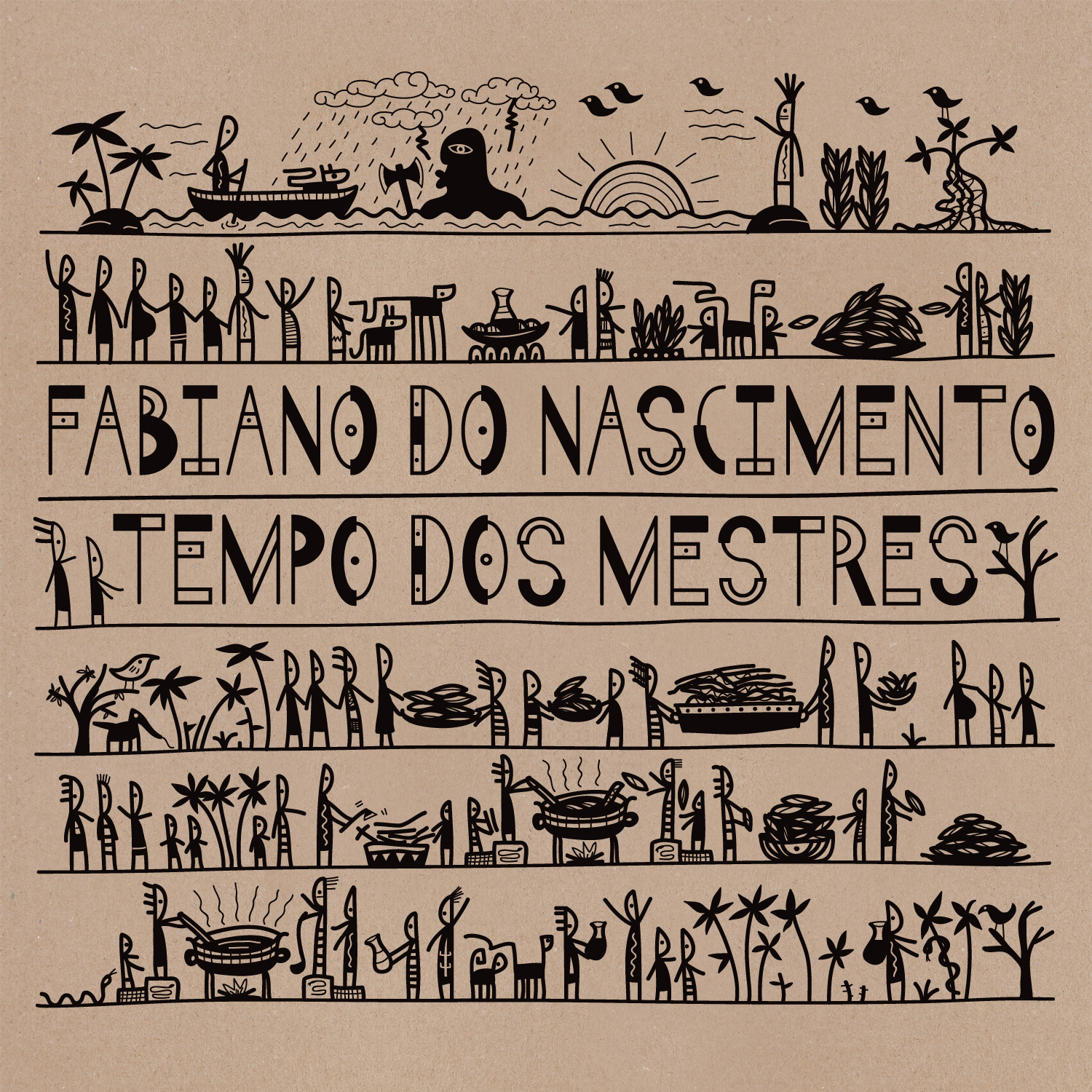Reviews February 16, 2017
Tempo Dos Mestres
Fabiano Do Nascimento's latest record's title translates to something like “Time of Masters,” and is charmingly ambiguous: Is the young Brazilian guitarist paying homage to the masters—covering João Pernambuco and Baden Powell—or is he claiming his place among them with his imaginative arrangements? Either way, it's another work of no-frills guitar virtuosity at the verdant intersection of Brazilian folk and jazz from the young composer—a beautifully peaceful record with a lot going on beneath the surface.
As he demonstrated on his 2015 debut, Dança do Tempos, Nascimento reveres the long and storied history of Brazilian guitar, but he's eager to take his place among the innovators. In 2015 that meant bringing in legendary septuagenarian percussionist Airto Moreira aboard to play, covering Hermeto Pascoal, and performing a sort of medley of songs by his most obvious predecessor, the MPB pioneer Baden Powell.
For this album, his second for Now Again Records, he has taken one of Baden Powell's most famous songs, “Canto de Xango” from Powell and poet Vinicius de Moraes' 1966 Os Afro-Sambas, and torn it apart. Nascimento plays practically the whole song on harmonics, withholding Powell's famous descending bass line for all but two short bursts, which, in context, hit the listener like a thunderstorm finally breaking on a hot summer day. Elsewhere Nascimento plays in sly homage: Although the track “O Tempo” is attributed to “Folkloric,” it shares a melodic line and turn with Gilberto Gil's “Marginália II.”
But Nascimento doesn't seem interested in concise songs or lyrics like Gil or Moraes. Both of his original compositions here employ the voice only as another instrument. Instead, Nascimento's arrangements create space for solo saxophone, or melodic lines of his own on either the seven-string or soprano guitar. His interpretation of the early 20th century composer João Pernambuco's “Brasileirinho” ends up sounding like a choro composed by a big Charles Mingus fan. It's great fun.
Not to bury Nascimento in comparisons, but several tracks call to mind Bola Sete's later work. After years working with Vince Guaraldi and finding the middle ground between bossa nova and West Coast jazz, Sete released an album called Ocean on American primitivist guitarist John Fahey's Tacoma Records. The album combined Sete's considerable gift for melody with the American guitarist's talent for contemplative, fingerpicked jams and was singular even within an oeuvre as varied as Sete's.
Nascimento has also been spending time on the American West Coast, and Tempo Dos Mestres also has that region's balance of creating something experimental that's also ornate and beautiful. If there is something else that Nascimento has in common with Gil, Powell and Sete, it's that he is well grounded in tradition but following his own muse.









